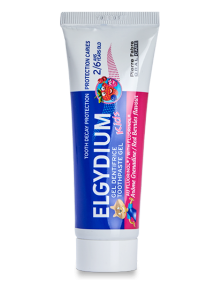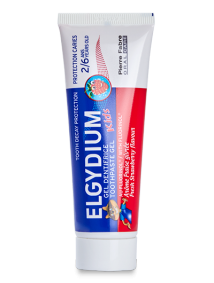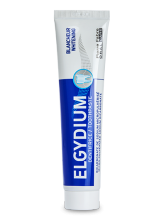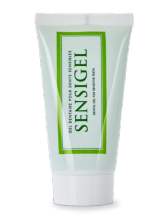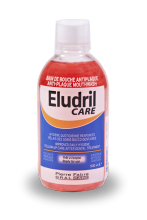How can children be taught to brush their teeth?
Start from the age of two
As soon as your child turns two, give them a small toothbrush on which you should put a pea-sized amount of a toothpaste containing 500 ppm fluoride, such as those from the ELGYDIUM Kids range. Tooth brushing, however haphazard, can then become part of the bedtime routine (you can finish the task off yourself if necessary).
Systematic, full brushing from the age of four
From the ages of three or four, your child can gradually learn to brush all of their teeth. Young children should be taught to brush each side of the mouth in turn. Brushing twice a day is sufficient, once in the morning and once in the evening, using a suitable toothbrush, such as those from the ELGYDIUM Kids range, with a toothpaste containing 500 ppm fluoride. Try different flavours of toothpaste to find your child's favourites.
They need to brush for two minutes on average. It still will not be perfect, but it contributes to good oral hygiene.
At age seven, brushing like a pro
Between the ages of seven and twelve, children must brush their teeth like adults, but with a suitable toothbrush and toothpaste (1000 ppm fluoride), such as those from the ELGYDIUM Junior range.
They should brush their teeth twice a day, for at least two minutes. The head of the toothbrush should follow a circular motion over all of the sides of the teeth: on the insides, outsides and on the chewing surfaces. The upper teeth and the lower teeth are brushed separately. You should also tilt the brush to an angle of 45ø on the gums, with the ends of the bristles towards the root of the teeth.
Finally, always brush from the gum to the tip of the teeth (?pink to white?) to avoid the bristles hitting the fragile edge of the gums.
Electric toothbrushes, designed to care for the enamel
Electric toothbrushes, or mixed like the INAVA Hybrid toothbrush, move with high-frequency vibrations and may be easier for children to use. These toothbrushes have a circular motion at the right speed and are quite effective.
Kids’ (2 to 6 years) tooth decay prevention
Protecting children’s first permanent teeth from decay is essential for life-long healthy teeth. It is easier to develop the best habits for good oral hygiene with the right tools.
See the program